Longevity conducted a survey among a selection of health experts. These included nutrition and fitness professionals, and integrative wellness coaches. We asked them to share their advice on what health habits to prioritize during the ongoing COVID-19 epidemic. The survey included questions on what dietary and exercise guidelines to follow and supplements to take during the ongoing COVID-19 pandemic.
Meet the experts who shared their health advice
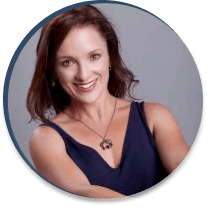
Celynn Morin is a global wellbeing expert with a practical and playful approach to helping business leaders and their teams enrich the quality of their lives. Celynn has been delivering workplace well-being programmes for over two decades. She is a registered dietitian and award-winning, international speaker. She has co-authored two books and has developed various well-being programmes such as Performance Chemistry, Wellculator, Fit to Lead, and Santé. Celynn is the co-author of Nutrition, Fitness, Diet & Lifestyle Hacks – The FAB Quotient: Fuel + Activate + Behave – for Resilient Energy. Celynn is a well-known, experienced public speaker and wellness facilitator.
Mark Gilbert, Nutritionist

Mark Gilbert B.Sc. (Nutrition). His current roles include nutritionist for The 1:1 Diet by Cambridge Weight Plan Science Officer, TDMR Europe & Scientific Subcommittee Nutritionist for The 1:1 Diet by Cambridge Weight Plan has been involved in nutrition and healthcare for over 25 years, is a registered nutritionist and has held multiple certifications in sports nutrition, exercise science and pharmaceuticals. He is currently Nutritionist for The 1:1 Diet by Cambridge Weight Plan and Science Officer for TDMR Europe. Formerly, Mark was Vice Chair of the European Specialist Sports Nutrition Alliance, Director of Consumers for Health Choice, author, international speaker, on the Advisory Board and columnist for Muscle & Fitness, Flex and Muscle Insider magazines and co-founder of FitnessGenes, Ltd. As a consultant, Mark has advised dozens of multi-national companies on product formulation/IP, regulatory affairs, corporate investment and marketing, including most of the world’s top sports nutrition companies, Tesco, Lion Capital and the Canadian Armed Forces. Mark has also worked with doctors, dietitians and specialist nurses in the NHS, advising and providing training on the use of enteral and parenteral nutrition and pharmaceuticals and worked with the police and the courts as an expert witness.
Lauren Barnao, Integrative Nutrition Health Coach
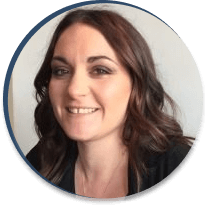
Lauren “Lozzy” Barnao is a certified Integrative Nutrition Health Coach on a mission to help busy, time-poor women to beat bloat, lose weight, stress less, and sleep more, all without deprivation. Lozzy knows firsthand what it is like to portray a successful, accomplished career woman on the outside while feeling like an unhealthy, stressed-out fraud on the inside.
Lozzy found that tuning in to her own gut feelings helped her to calm niggling digestive issues and find tools for coping with the stress and overwhelm from working in the busy corporate world. Lozzy is a gut health geek, try-hard yogi, and a huge dog lover, fostering rescue dogs, while also having two of her own. Connect with her on Instagram (@gut_feelings_with_lozzy) and Facebook (@gutfeelingswithlozzy).
Kirsten Puskar, Dietitian, Diabetes Educator
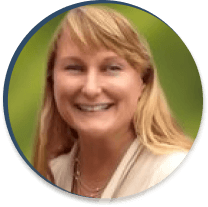
Kristen Puskar is a Registered Dietitian Or Nutrition Professional Specialist in Ambler, Pennsylvania. She graduated with honors in 2016. Having more than 5 years of diverse experience, as a registered dietitian or nutrition professional. Whether my clients need to lose or gain weight, improve or reverse diabetes and kidney disease as well as overcome GI issues and gastroparesis, I help them transition to their unique nutritious diet and lifestyle with small changes they can make. A plant based diet has been shown in a multitude of research to reduce inflammation and optimize health. I help my clients who want this to transition with delicious recipes and cooking classes, in-person again hopefully soon.They are often amazed by how a few minutes of activity incorporated into their daily routines has improved their mental health, strength, and healing.
Arwen Bardsley, Healer & Holistic Health Coach
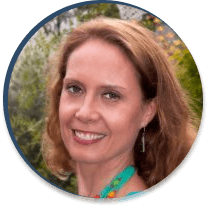
Arwen Bardsley loves to explore the full spectrum of modern science, combined with ancient wisdom, to help you get your energy back, and hold on tight to it! Arwen is a Certified Food & Spirit Practitioner, and a Low Tox Coach, and she also utilises her Bachelor of Arts in Psychology, Reiki Master qualification, and additional certificates in Kinesiology, Seichim, Crystal Healing, and Aromatouch Massage. She specializes in helping you to identify the root underlying causes of any type of wellbeing concern and working with you using all the tools of Evenstar 5 Star Wellbeing (which includes Food, Movement, Sleep, Surroundings & Being) to feel energized and balanced on all levels – physical, mental, emotional and spiritual.
She helps people with problems ranging from chronic pain, anxiety and stress, overwhelming fatigue, addictive behaviors, negative habits, approaches to food and weight management, grief, fertility, and hormonal issues, and toxicity of any kind.
Lidija Millonig Atlas, Health Expert| |Coach| |Author|
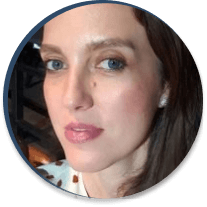
Lidija Millonig Atlas, D.N.M., L.T.M. Atlas (aka the Healthstyle Guru) is a Doctor of Naturopathy/Natural Medicine and has studied natural cure, homeopathy, flower essence, phytotherapy, aromatherapy, nutrition, and other modalities for over 22 years. She is a Registered Holistic Medical Practitioner, Certified Reflexologist, Certified Advanced Ho’oponopono Practitioner, Certified Emotional Freedom Technique (EFT) & Thought Field Therapy (TFT) Practitioner, Reiki Master, and has a Diploma in Nutrition. She also holds a B.M. and M.M. in Music. In addition, she is the Leading Healthstyle Change Expert and Creator of the ATLAS Method: Healthtsyle Change, AIRCA Method: Weight Loss, and the COVET-Z Protocol: Immunity. She is also a member of Peace Society Worldwide.
L.T.M. Atlas released her first e-book titled, “Jump Into Health in 21 Days! Secrets to a Healthstyle Change: The ATLAS Method”, and was a contributing writer for Online Holistic Health, Natural News, Organic Lifestyle Magazine, and Medium Daily Digest.
Her newest book “Corona Warrior – Arm Yourself With Facts Not Fear in the Fight Against the Invisible Enemy & Learn How To Master Your Immunity During The Covid-19 Pandemic and Beyond”, is now available.
Sharan Kafoa, Integrative Nutrition Health Coach
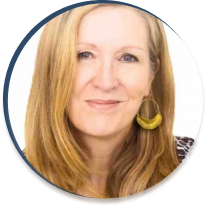
Sharan Kafoa became an Integrative Nutrition Health Coach after experiencing her own wellness crisis while driving her career as a high-performing corporate professional. She changed her life and became an integrative nutrition health coach. From hence, she has made it her mission to use her knowledge, both learned and experienced, to support women who are exhausted, burned out, struggling to manage their day-to-day. Or even those who are just wondering where their body went (because the one looking back at them in the mirror sure as hell wasn’t there earlier!!).
She brings all of her knowledge, and experience, of being a mother at 40, and all of the hormonal and autoimmune challenges over the years, to her work with her clients. She wants to help women fall in love with themselves, live a healthy life, and thrive.
“My mission is to empower women to have a better relationship with themselves, to live a life full of energy, to feel in control of their health and weight, and to have the confidence to take control of how they feel.”
Marina Green, Nutritionist and Health Coach
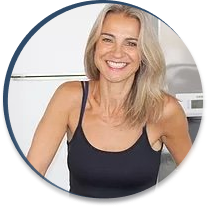
Marina Green is a registered associate nutritionist, health coach, and co-founder of The Green Ward. She has been an authentic and professional source of holistic healing, ancient wisdom, and scientific knowledge to those seeking inspiration, help, or advice concerning their health and well-being. Her mission is to share what it takes to build a strong mind, body, and soul and live a healthy disease-free life.
Marina’s turning point came a few years ago when she hit 50 and realized she had given her “best” years to everyone except herself! She wasn’t prepared to enter my autumn years feeling tired, moody, flabby, and designated to the fifty and forgotten box!
Through mindful eating and a different mindset, she crafted a routine that has not only seen her through the menopause symptom-free but more energized, happier, and with a feeling of being ageless!
She runs no-nonsense programs through The Green Ward, which is all about being you, but healthier!
The Longevity Survey 2021: Health experts on what to prioritize during COVID-19
What is the role of supplements in dietary support during the ongoing waves of the COVID-19 epidemic?

“To help bridge gaps due to poor lifestyle i.e. gut health (probiotics) and increased stress i.e. vitamin B.”
Celynn Morin

“Vitamin D has strong evidence. zinc & selenium have moderate evidence. Several micronutrients work synergistically to effect a robust immune response.”
Mark Gilbert

“With added levels of stress and people making less nutritious food and drink choices in lockdown, it is likely that they will not be getting adequate nutrition from their food. Also, food shortages for certain industries (meat for example here in Australia) made it even harder. There are a few key supplements that can make a big impact.”
Lauren Barnao

“Only if deficient in zinc, vitamins A, D, C with appropriate diet”
Kirsten Puskar

“Bolstering immunity and improving recovery. Due to the depletion of soil supplements are required all the time, but especially during this global epidemic.”
Arwen Bardsley

“Immune boosting”
Lidija Millonig Atlas

“Poorly nourished individuals are at greater risk of bacterial, viral, and other infections. It is vital therefore to pay great attention to our diet and nutritional status during the ongoing COVID-19. and therefore supplements where the diet falls short of the immune systems’ nutritional needs.”
Sharan Kafoa

“We’re all under more stress than ever due to the uncertainty and health challenges that we all face right now. Our bodies need extra support when we’re stressed, yet it’s a time when we often eat poorly.”
What experts recommend when it comes to supplementation:
Are there any health supplements you would recommend that we can’t get from food or produce naturally?

“Omega 3. Others may be needed depending on current health status, genetics, and diet such as magnesium.”
Celynn Morin

“Vitamin D is not available from food in adequate quantities to have its full effect.”
Mark Gilbert

“For vegans, they require a B12 supplement (only get B12 from animal products). When people are stressed, they burn through their B vitamins very quickly so a B Complex is handy. Also, people don’t eat enough good fats (only inflammatory fats) so a sustainable Omega-3 supplement is helpful for brain and skin health and blood sugar regulation.”
Lauren Barnao

“Vitamin D or for gluten-sensitive – vitamin B complex if vegan – B12”
Kirsten Puskar

“It depends on the country you live in as to which vitamins and minerals are less readily available in whole foods. Ideally, supplements should be taken in accordance with individual requirements.”
Arwen Bardsley

“Omega 3’s, vitamins (D, C, A, E, B complex) & minerals (iron, potassium), amino acids”
Lidija Millonig Atlas
 “Theoretically we should be able to get everything we need from food, but we don’t, for many reasons. My baseline recommendations are good multivitamin/mineral, omega 3 fatty acids, vitamin D, and vitamin C.”
“Theoretically we should be able to get everything we need from food, but we don’t, for many reasons. My baseline recommendations are good multivitamin/mineral, omega 3 fatty acids, vitamin D, and vitamin C.”
Sharan Kafoa
 “I have a food-first approach when it comes to nutrients as they are more potent when absorbed through eating the foods that contain them. Supplements are synthetic versions of nutrient compounds. It is unclear how well synthetic nutrients are absorbed and used in the body. ” Marina Green
“I have a food-first approach when it comes to nutrients as they are more potent when absorbed through eating the foods that contain them. Supplements are synthetic versions of nutrient compounds. It is unclear how well synthetic nutrients are absorbed and used in the body. ” Marina Green
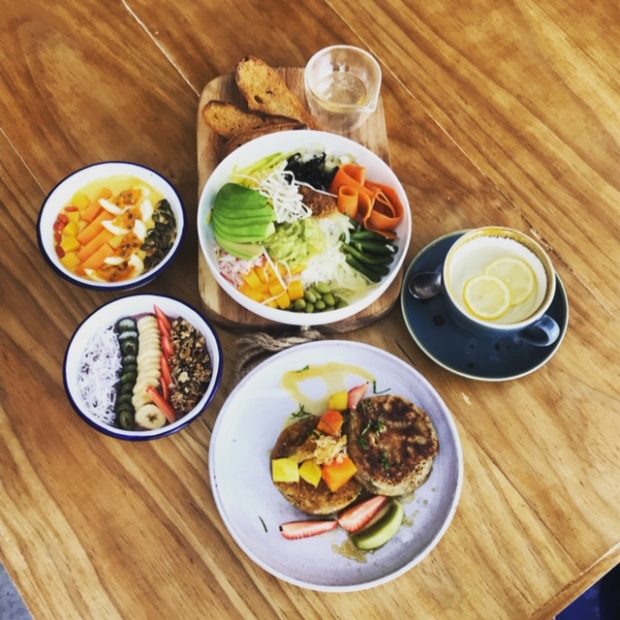
Why do we need to change our supplements as we age?
All experts agree this is an important consideration as we move towards a more personalised medical approach to our health. Supplements are not a one size fits all, and certainly not as we age.

“Increased need for certain nutrients to help with hormonal balance and bone health”
Celynn Morin

“Older people often need more protein and larger dosages. Protein supplements can help. Vitamin D is often deficient, and women don’t need as much iron”
Mark Gilbert
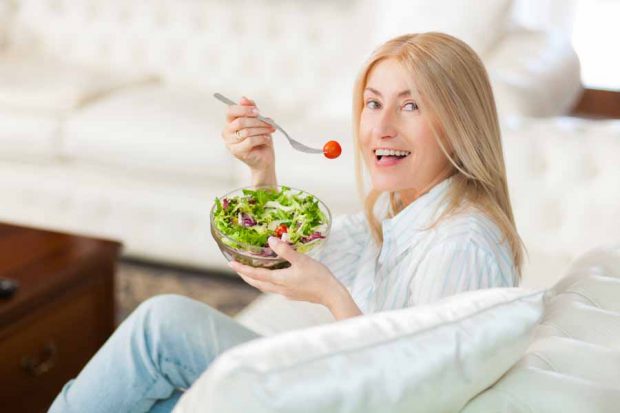
Minerva Studio/Shutterstock

“Not just age but a lifestyle. We should never stay on one “regime” long term. I prefer less supplementation and more variety in food choices. But in terms of age, hormone changes have a big impact on our nutrient making, storing and absorption so need to be adjusted accordingly. For example, the majority of women of menstruation age get very low in iron at some point in their life.”
Lauren Barnao

“As we age, we need/consume fewer calories which could lead to fewer nutrients”
Kirsten Puskar

“Supplements should always be taken based on individual requirements and different ages and stages require different supplementation.”
Arwen Bardsley

“Age, lifestyle, diet, hormones and stress levels change as we age, therefore we have to tweak supplementation accordingly!”
Lidija Millonig Atlas
 “If you’re a woman then your needs may change as you age and go through various hormonal stages.”
“If you’re a woman then your needs may change as you age and go through various hormonal stages.”
Sharon Kafoa
 “Nutrient needs change as we age because aging is linked to physiological changes that can make you prone to deficiencies in calcium, vitamin D, vitamin B12, iron, magnesium to name a few.”
“Nutrient needs change as we age because aging is linked to physiological changes that can make you prone to deficiencies in calcium, vitamin D, vitamin B12, iron, magnesium to name a few.”
Marina Green
Experts in summary
Nutrient needs change throughout one’s lifecycle. For example, children need more different nutrients compared to older adults. As we age, our dietary needs also change. So it’s only natural that our supplements will change too. All biochemical processes change as we age. It makes sense that our need for supplements would also change.
Experts weigh in on food choices
What foods should we be eating more of?

“High fibre, veggies: 50-60%; Protein: 30%; Fat: 20% High fat: avocado, nuts, seeds. Plant-based proteins such as legumes, tempeh, tofu.”
Celynn Morin

“Broccoli, tomatoes, berries, grass-fed beef, fish, omega-3 eggs, omega-3 fed chicken, extra virgin olive oil”
Mark Gilbert

“Vegetables should be half of your diet, the rest should be made up of healthy fats (avocado, coconut, nuts, seeds, olives, etc) and healthy real food proteins (grass-fed meats, wild-caught fish, fermented and organic soy, legumes if tolerated). Society eats too much red meat and can’t digest it well (stomach acid decreases with age and everyone is in too much of a rush to eat). Fibre, for the most part, comes from a variety of vegetables.”
Lauren Barnao
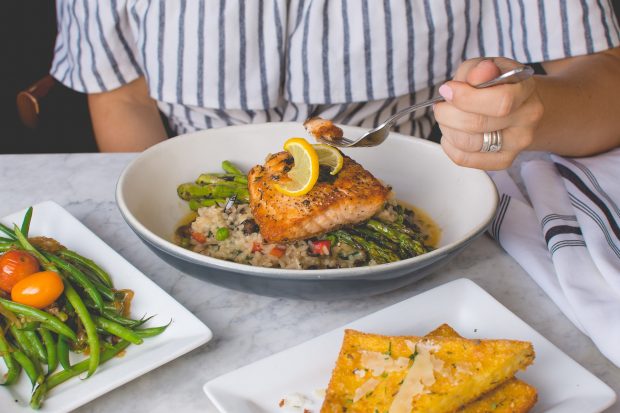
Photo by Travis Yewell on Unsplash

“Veg stew with lentils, beans and or quinoa, fruit for dessert”
Kirsten Puskar

“As discussed above. For high-fat foods these need to be ‘good’ fats including nuts, seeds, avocado, grass-fed butter and ghee, olive oil, nut oils, seed oils. Fish should be wild-caught and smaller fish to avoid heavy metal contamination as much as possible. All meat should be organic and biodynamic. Plant-based proteins such as legumes, beans, peas, lentils.”
Arwen Bardsley

“Cabbage, Arugula, Cucumbers, Bananas, Pears, Apples, Blackberries, Grass-fed Beef, Organic Chicken, Wild-caught Salmon, Organic sprouted Tofu, Garbanzo beans, Sunflower seeds, Wild rice, Flax Seeds, Chia seeds, Goat, Lamb”
Lidija Millonig Atlas
 “It depends on what you mean by low fat. Ideally, there should be a plate full of mixed vegetables, healthy fats, and protein.”
“It depends on what you mean by low fat. Ideally, there should be a plate full of mixed vegetables, healthy fats, and protein.”
Sharan Kafoa

“Eating large qualities of vegetables and fruit provide immune-boosting nutrients such as beta-carotene, vitamin C, and vitamin E. Because many vegetables, fruits, and other plant-based foods are also rich in antioxidants, they help reduce oxidative stress”.
Marina Green
Experts have a view about taking stimulants
What stimulants should be avoided (or not) if you’re worried about COVID-19?

“Most of my clients and target audience are hyper-aroused and overstimulated (affected by stress, tech, life demands, and not just diet) so I would rather promote moderate use of tea/coffee and focus on hydration and eating more fibre and gut-friendly foods to help with immunity.”
Celynn Morin

“none”
Mark Gilbert
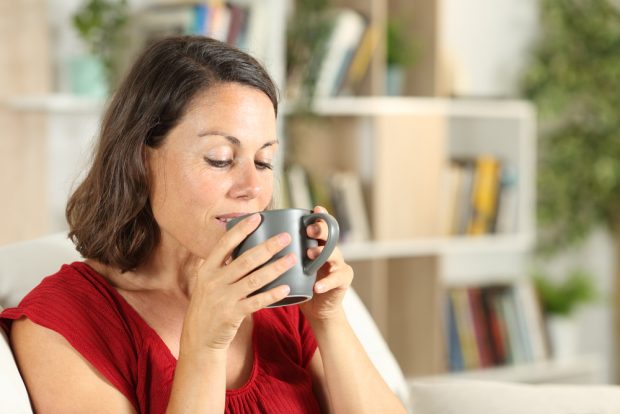
Pheelings media/Shutterstock

“Green and herbal teas are OK. Black tea should be restricted. Also salt should be of good quality, not table salt”
Lauren Barnao

“Dark chocolate, green tea, enjoy weekly”
Kirsten Puskar

“All stimulants should be avoided other than peppermint tea!”
Arwen Bardsley

“Tobacco, Energy drinks, Artificial sweeteners”
Lidija Millonig Atlas
Experts in summary:
This was an interesting category. There was some divergence in views on how many stimulants and which to avoid. Clearly, though, the best wellness approach would be to try and substitute stimulants with activities that are better than using less healthy stimulants. Stimulants can be an unhealthy crutch. Instead of reaching out for unhealthy stimulants, try instead doing yoga and meditation. We know it’s a challenge, but the results will amaze you!
Are you aware of any effects stimulants may have on the virus or…?

“They have a negative effect on your immune system negatively, so that would put you more at risk of a more serious case.”
Lauren Barnao

“No”
Kirsten Puskar

“No”
Arwen Bardsley

“Decrease oxygenation in your blood and acid-alkaline balance in the body becomes off-balance, therefore, promoting an internal terrain for a decrease in immunity.”
Lidija Millonig Atlas
“Depending on the stimulant, you can increase your levels of cortisol, further exacerbating the body’s stress response. Generally when cortisol rises so too does insulin, resulting in weight gain.”
Sharon Kafoa
 “Highly processed foods and snacks will contain a lot of extra sugar and salt.”
“Highly processed foods and snacks will contain a lot of extra sugar and salt.”
Marina Green
Experts in summary
Stimulants may create some kind of imbalance in the body – hormones, gut flora, immunity – and these are all affected one way or the other. Depending on your personal health and situation, as well as the risk of COVID-19, one should consider reducing unhealthy stimulants.
How much exercise should I have and what kind?

“Time in nature such as brisk walking; other enjoyable movements such as gardening, playing with children/pets, dancing, etc.”
Celynn Morin

“Depending upon their present activity levels, age, abilities, preferences, etc”
Mark Gilbert
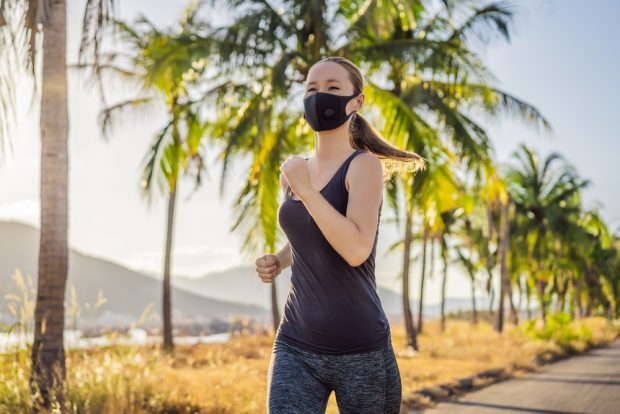
Elizaveta Galitckaia/Shutterstock

“Not more exercise but more MOVEMENT. Too much HIIT can put more stress on the body and negatively impact the immune system. 1 hour of movement a day is beneficial (better if outside in the sunshine!)”
Lauren Barnao

“15 minutes am and pm, outdoors if possible”
Kirsten Puskar

“Moving your body every day is essential. Find something you enjoy and do it frequently. Moderate cardiovascular exercise is a definite and some mind-body movement such as yoga, tai-chi or qigong.”
Arwen Bardsley

“Exercise that is enjoyable to the individual (weightlifting, biking, swimming, yoga…etc.) However, each person should take daily walks of 15 minutes for the health benefits.”
Lidija Millonig Atlas
 “Everybody is different. I recommend people find what works for them, with their body, their lifestyle, and what they can do consistently. For some that’s HIIT, for others that’s yoga.”
“Everybody is different. I recommend people find what works for them, with their body, their lifestyle, and what they can do consistently. For some that’s HIIT, for others that’s yoga.”
Sharan Kafoa
 “Strength training involves muscle contractions which help drain the lymphatic system. The lymph system is a channel for toxins to be excreted from the body and a pathway for immune cells to travel where they are needed. Consistent muscle contractions drive the healthy flow of the lymph system. Yoga and tai chi use meditation and deep breathing centre the mind and body and reduce stress, which is essential to a healthy immune system. Aim for a minimum of 30 minutes of exercise three days a week.”
“Strength training involves muscle contractions which help drain the lymphatic system. The lymph system is a channel for toxins to be excreted from the body and a pathway for immune cells to travel where they are needed. Consistent muscle contractions drive the healthy flow of the lymph system. Yoga and tai chi use meditation and deep breathing centre the mind and body and reduce stress, which is essential to a healthy immune system. Aim for a minimum of 30 minutes of exercise three days a week.”
Marina Green
The experts all agreed
The best health advice includes exercise. Exercise is medicine! Daily movement in any form – intentional movement which increases the heart rate for some time. 30-60 minutes is a good target. One must be aware of their fitness personality to find the right time and right kind of exercise for what medical condition and age the person is.
What foods can improve my diet?

“Fresh produce as a focus. Mediterranean diet guidelines.”
Celynn Morin

“More vegetables, fewer packaged foods.”
Lauren Barnao

“Half your day from plants, colorful fruit & veg, whole grains, fiber”
Kirsten Puskar

“Fresh fruits, vegetables, organic protein, and great quality water”
Lidija Millonig Atlas
 “My health advice here is to crowd out the high sugar, high trans fat, high salt, highly processed foods and with more fresh fruit and vegetables, quality proteins and healthy fats.”
“My health advice here is to crowd out the high sugar, high trans fat, high salt, highly processed foods and with more fresh fruit and vegetables, quality proteins and healthy fats.”
Sharon Kafoa
 “Nutrient-dense foods that are in as natural a form as possible just as nature intended! vegetables and fruits in season as nutrient content is higher. Free-range to organic meats and poultry because the animals’ diets and well-being are better cared for, which is then better for us. Drink plenty of water to stay hydrated. Fats derived from plants such as avocados, olive oil, and coconut oil. Fibre and fermented foods to help promote a healthy gut.”
“Nutrient-dense foods that are in as natural a form as possible just as nature intended! vegetables and fruits in season as nutrient content is higher. Free-range to organic meats and poultry because the animals’ diets and well-being are better cared for, which is then better for us. Drink plenty of water to stay hydrated. Fats derived from plants such as avocados, olive oil, and coconut oil. Fibre and fermented foods to help promote a healthy gut.”
Marina Green
![experts [longevity live]](https://longevitylive.com/wp-content/uploads/2020/03/variety-of-fruits-890507-620x465.jpg)
Experts in summary
Immunity boosting natural foods like fruit and vegetables, more home-cooked food, preferably plant-based. Avoid batch cooking and eating stale food – reheating just kills most of the nutrients. Eat adequate good quality protein, but please moderate your sugar and fat intake.
Experts discuss supplements
Should I start taking supplements? Which ones and how much?
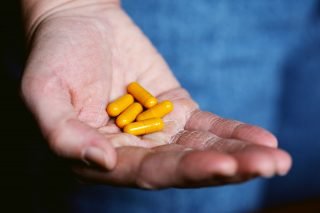
Photo by Sharon McCutcheon on Unsplash

“Can increase vitamin C and vitamin D”
Lauren Barnao

“None unless deficient after improving diet”
Kirsten Puskar
 “Most people would benefit from increased vitamin D”
“Most people would benefit from increased vitamin D”
Sharan Kafoa
 “Supplements should be kept to an absolute minimum as they are synthetic and absorption of nutrients is not designed to be in isolation – nutrient absorption requires a whole range of vitamins, minerals, co-factors, and enzymes that allow for optimal use by the body. Without these additional compounds, synthetic nutrients are less likely to be absorbed by the body in the same way as their natural counterparts”
“Supplements should be kept to an absolute minimum as they are synthetic and absorption of nutrients is not designed to be in isolation – nutrient absorption requires a whole range of vitamins, minerals, co-factors, and enzymes that allow for optimal use by the body. Without these additional compounds, synthetic nutrients are less likely to be absorbed by the body in the same way as their natural counterparts”
Marina Green
Experts in summary
Everyone should consider vitamin D 2000 IU and vitamin C 250 mg daily, based on individual needs. However, not everyone needs to supplement. Our experts believe that even if you do eat healthy, during COVID-19 you should check your vitamin D levels and zinc specifically.
Frequent mental health checks – what needs to be checked and how often?

“General mental and emotional coaching (self-awareness and regulatory techniques) including awareness of the signs of burnout.”
Celynn Morin

“Stress and mental health go hand in hand. Find ways to be calm, happy, and the content will make sure you are digesting your food and absorbing the nutrients. Being in a chronically stressed state burns through essential vitamins promotes fat storage, and impacts the immune system.”
Lauren Barnao

“Positive attitude, morale – check-in phone calls with friends, sunny windows, walks outdoors”
Kirsten Puskar

“Levels of anxiety and depression should be checked monthly.”
Arwen Bardsley

“Stress levels, energy levels, overall disposition of mood, and sleep patterns”
Lidija Millonig Atlas
 “Maintaining social contact, doing things that bring joy, that reduces stress, reaching out to speak with someone if needed.”
“Maintaining social contact, doing things that bring joy, that reduces stress, reaching out to speak with someone if needed.”
Sharan Kafoa
 “Taking stock of your emotional well-being can help identify warning signs of potential ailments like depression or anxiety early on before they grow into a full-blown clinical condition. Personal needs change over time, so it’s important that well-being is reviewed on a regular basis.”
“Taking stock of your emotional well-being can help identify warning signs of potential ailments like depression or anxiety early on before they grow into a full-blown clinical condition. Personal needs change over time, so it’s important that well-being is reviewed on a regular basis.”
Marina Green
Experts summary
We need to ensure good mental health at all times, not least during a pandemic. However, successive lockdowns are wearing most down. So take it seriously and do self and family check-ins.
The low down
The COVID-19 pandemic is far from over, even though vaccination programmes are rolling out across the world, governments and medical experts caution there is no room for complacency when it comes to your health and wellness.
Experts confirm health is more than physical
Good health is not just about eating well, taking supplements, exercising, and generally avoiding stimulants. The experts were clear. It’s also about your mental well-being. Take this opportunity to improve your well-being. Learn new wellness techniques. Try yoga, medication, and holistic practices. Revisit your diet and supplements. Please consult an expert and professional in the wellness field to ensure that what you are taking is right for you. And importantly, keep the human connection alive. As Celynn Morin pointed out, “it’s important to avoid isolation if you can. Ensure you have the chance to connect with others to feel part of a community and cared for.”
This experts review was compiled by the Longevity Live Team, including John Ridd, James Hall, UK based online media professionals and Gisèle Wertheim Aymés and reported by Pie Mulumba.
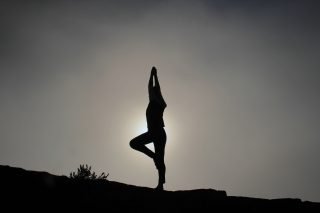
Photo by Patrick Hendry on Unsplash


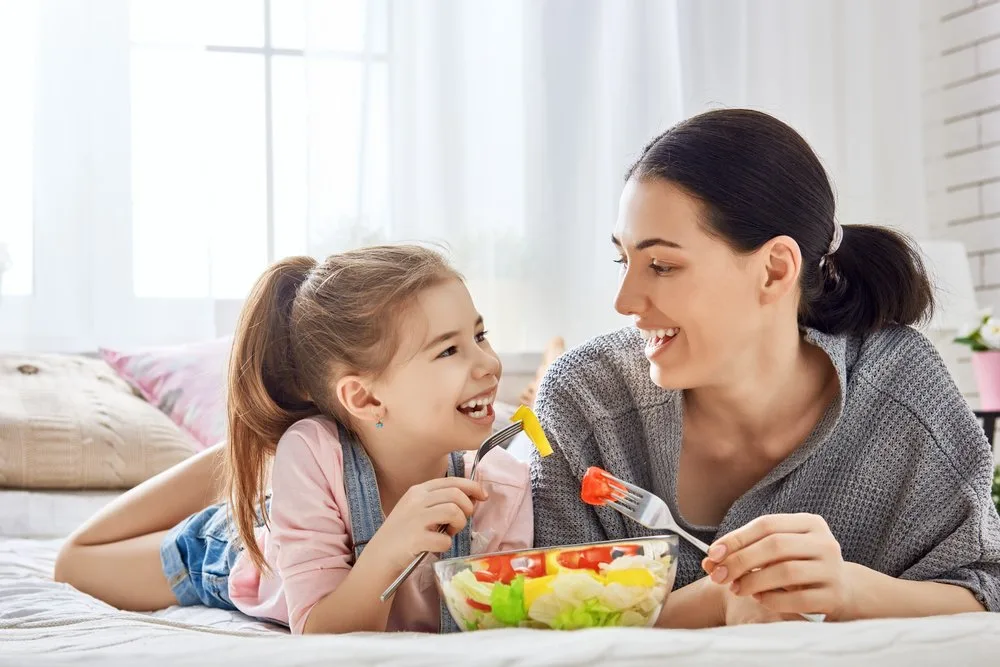
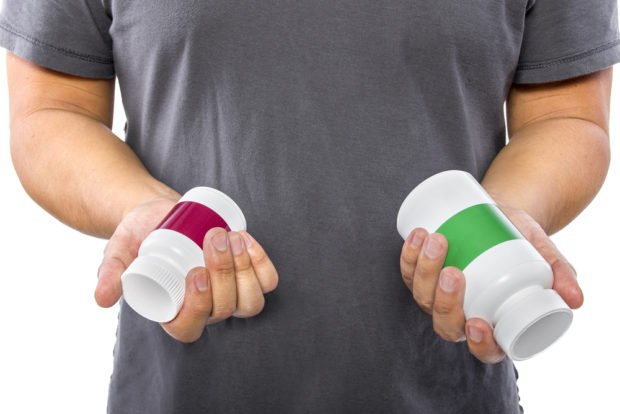
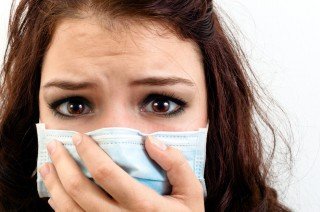
![women [longevity live]](https://longevitylive.com/wp-content/uploads/2020/01/photo-of-women-walking-down-the-street-1116984-100x100.jpg)










